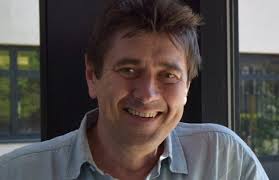Interview with Nicolas Bricas, Researcher, food socio-economist, CIRAD, Moisa JRU, Holder of the UNESCO Chair in Food and Nutrition for the World
What does the Foodscapes project consist of?
Foodscapes aims to better understand the relationship between ’food landscapes’ and ’food styles’. Thus, our environment - the proximity or not of food shops, the type of business, access to a shared garden, etc. - has an impact on our eating behaviour.
Until now, when trying to understand the determinants of eating behaviour, we were mainly interested in the characteristics of individuals (age, gender, standard of living, etc.). With the Foodscapes project, we have changed our perspective: we recognise that individuals make their food choices not only according to who they are, but also according to their environment. It is a way of recognising that supply does not only meet demand, it shapes it. By facilitating access to certain products, we can thus guide consumers towards more sustainable food behaviours. This is a very interesting opportunity for policy makers.
The project focused on Montpellier and its conurbation. We crossed very different scientific and methodological points of view: sociological, demographic, nutritional, economic. We started from the way people imagine their food landscapes.
At the same time, we carried out mapping work in order to characterise, neighbourhood by neighbourhood, the proximity, density and diversity of food shops. Two more specific studies were carried out: one on the effects of gardening in shared gardens on eating behaviour; the other on food ordering via the internet.
Finally, we conducted a questionnaire survey among a representative sample of the population of Greater Montpellier. How do consumers shop? How do they travel? What do they buy? To do this, we analysed the sales receipts, which will make it possible to assess the nutritional and environmental quality of the diet of the people surveyed and their trips for food shopping. This research is a first in France.
We have also conducted a study on the variability of prices according to neighbourhoods, on the effects of food proximity practices (short circuits, buying local produce and gardening) on agricultural knowledge and, in April 2020, on changes in food supply patterns during confinement.
What was the added value of Agropolis Fondation funding?
The project is part of a wider programme on sustainable urban food systems (Surfood Programme) that Agropolis Fondation has helped to initiate. This programme includes other research and training projects. In the case of Surfood, as in the case of Foodscapes, Agropolis Fondation funding made it possible to mobilise and federate a multidisciplinary and multi-institutional collective of researchers on innovative subjects that involved several scientific and methodological risks.
This funding has also enabled the World Food Systems Unesco Chair, initiator and partner of the Surfood programme and the Foodscapes project, to organise regular exchanges with the services of the Montpellier Metropolis and now with other interested French cities. The Chair also runs, together with the City University of London, a European network of researchers and major cities interested in the same issues. It organised a presentation of the project to cities around the world with food policies, signatories of the Milan Pact, which met in Montpellier in October 2019. It is co-organising a conference of French and British nutrition societies on urban nutrition policies, which will allow the results of the project to be discussed in early 2021.
African cities have also shown interest. The Covid 19 pandemic has postponed an appointment scheduled for May 2020 in Ouagadougou (Burkina Faso), where a discussion with the mayors of African cities of the Milan Pact was planned, notably on this subject.
Finally, training is one of the very significant achievements of the project. In different ways: Through a module on urban sustainable food policies, students from two Specialised Masters, "Management of sustainable urban projects" (MS MPUD of the Montpellier School of Architecture) and "Innovations and Policies for Sustainable Food" (MS Ipad of Montpellier Supagro and CIRAD) havecarried out a diagnosis of the food landscape of two cities on the outskirts of Montpellier (Murviel-lès-Montpellier and Fabrègues) together . Next year we are planning to extend this partnership to the Specialised Masters in "Urban Planning and Health" at the Montpellier School of Architecture and to open the module to continuing education.
Contact
Nicolas Bricas, food socio-economist, CIRAD, Moisa JRU, Holder of the World Food Systems UNESCO Chair
